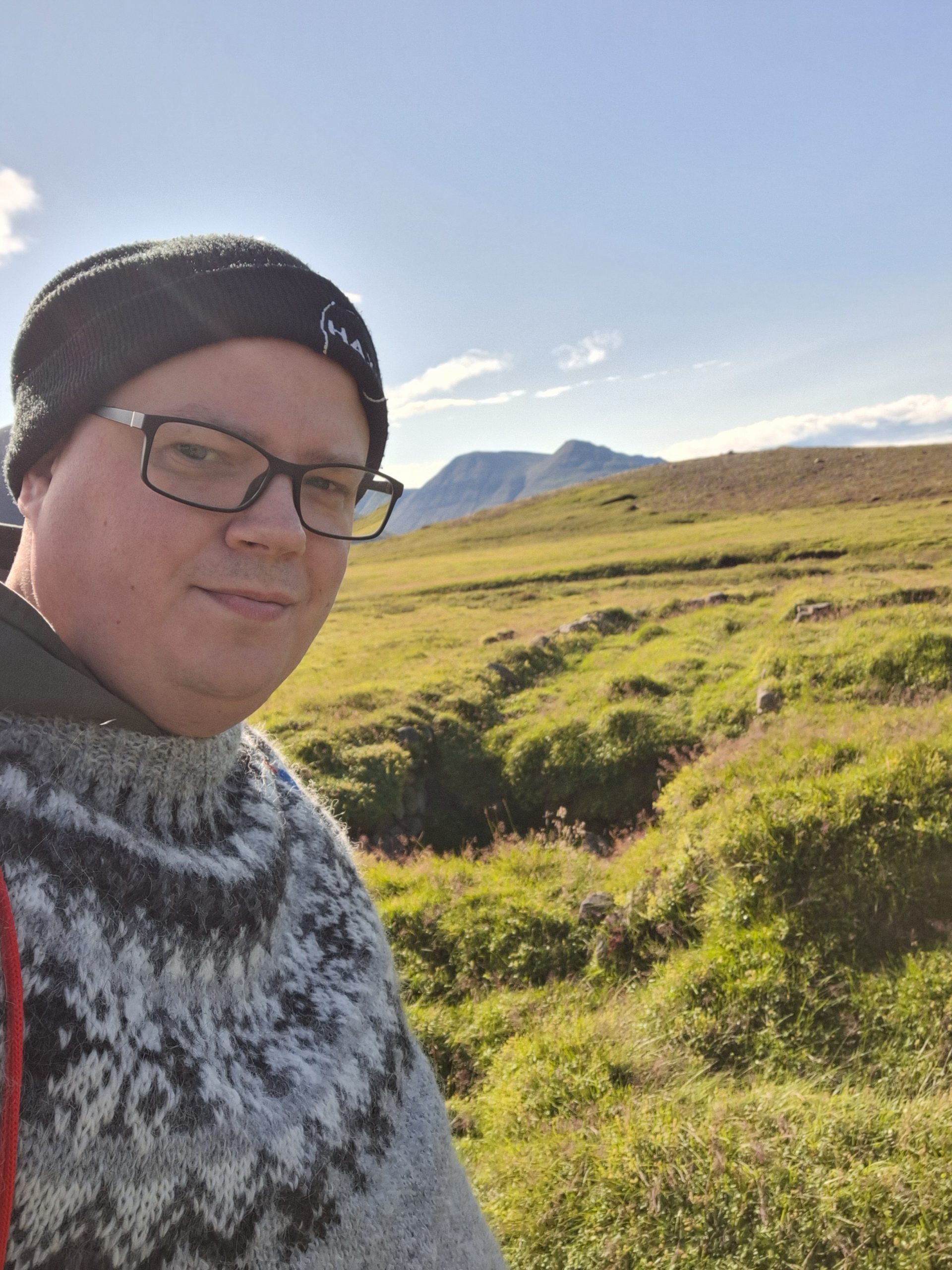Brendon Lee (Postdoc) - Start: May 2023
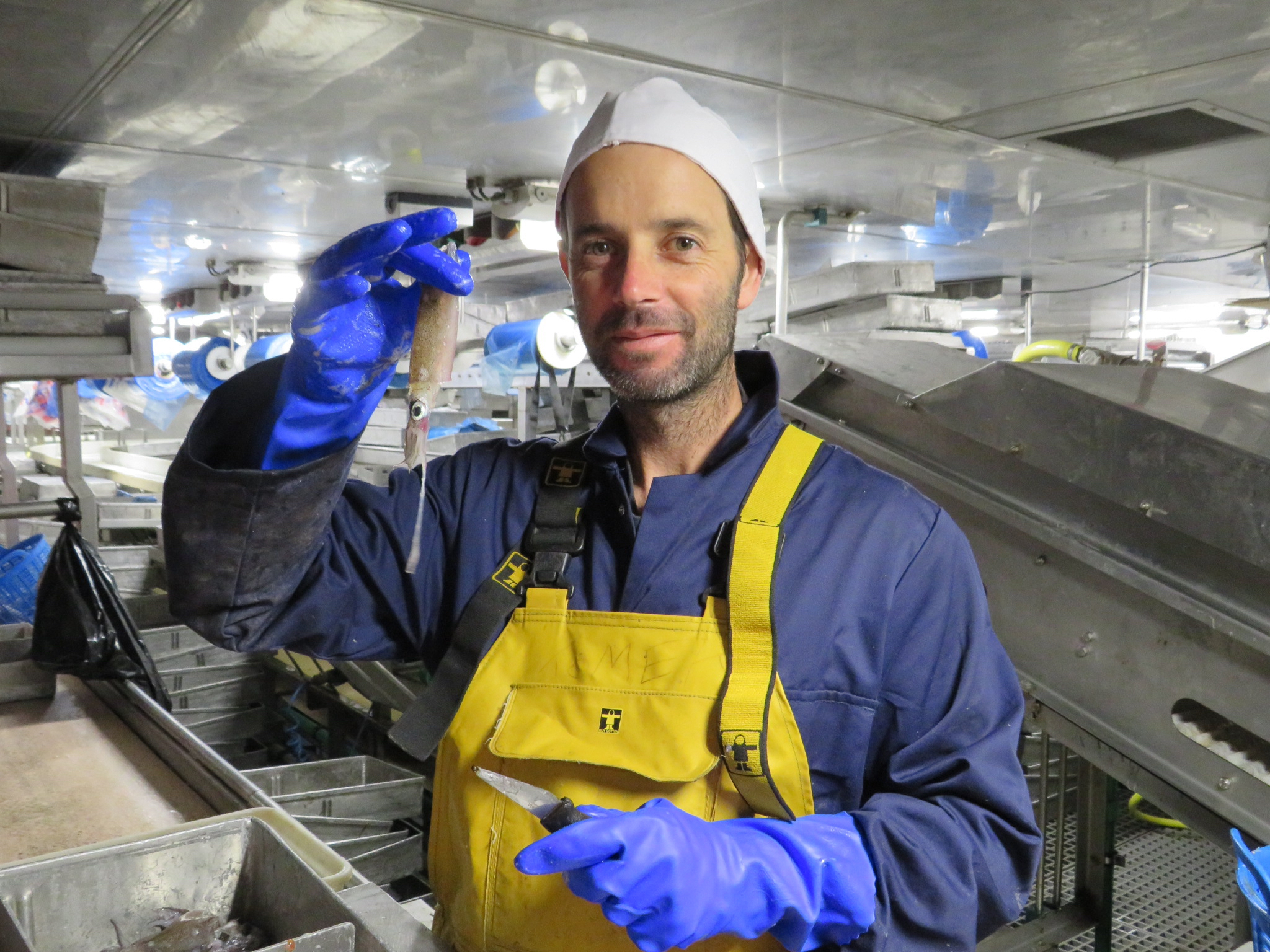 I am a fisheries scientist who specialises in studying marine fish life history, population structure, biology, and species interactions to contribute to their sustainable management.
I am a fisheries scientist who specialises in studying marine fish life history, population structure, biology, and species interactions to contribute to their sustainable management.
I completed my BSc (Honours) in Ichthyology and Fisheries Science from Rhodes University in Grahamstown, and later my MSc in Marine Science from the University of KwaZulu-Natal, while based at the Oceanographic Research Institute in Durban. During this period, I focused on describing the biology and assessing the stock status of a large pelagic predator on the east coast of Southern Africa. My PhD in Fisheries Science from Rhodes University aimed to use a multidisciplinary approach to understand the complex stock structure dynamics for Patagonian toothfish on the Patagonian Shelf.
Throughout my career, I have worked in various academic, private sector, and government-based roles related to species across the nearshore, demersal, and benthopelagic marine environments. Most recently, I was responsible for leading biological and ecological research related to improving the management of large-scale industrial longline and trawl-based fisheries in the southwest Atlantic ecosystem.
Currently, I teach various fisheries-related courses at the University of Iceland. My primary research project, in affiliation with the Marine and Freshwater Research Institute, focuses on addressing local and regional scale questions related to the population structure of blue whiting in the northeast Atlantic. The sustainable management of this species is of critical importance to fisheries and ecosystem dynamics, and my research aims to contribute to its sustainable management.
Einar Pétur Jónsson (PhD student) - Start: October 2023
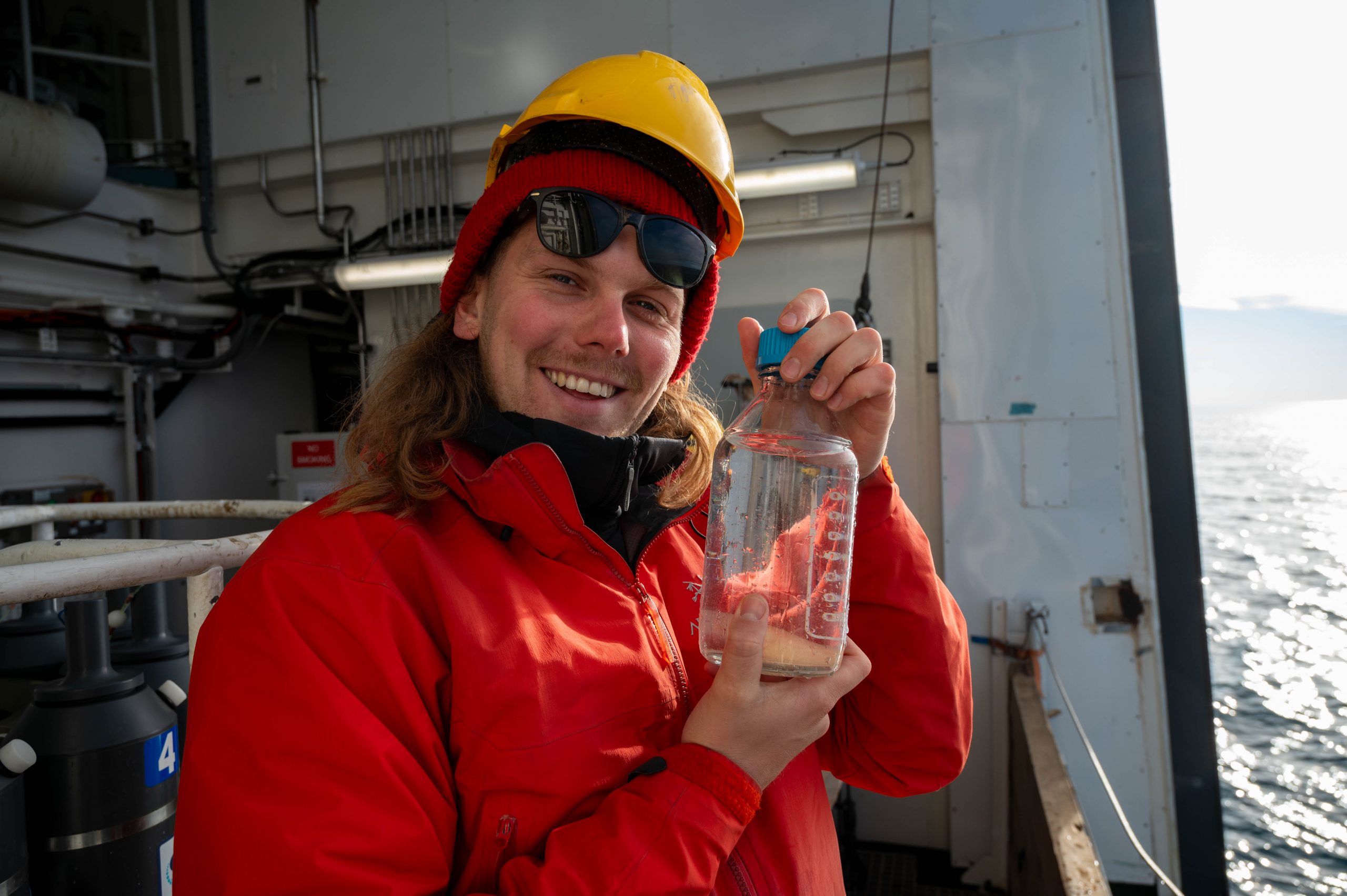
Being brought up in Iceland and spending much time by and in the sea now seems like an obvious path towards studying marine biology. My undergrad studies in marine biology were carried out in Chile, at the Pontific Catholic University of Chile, where I got to know a rich and fascinating ecosystem governed by strong oceanographic processes.
Upon coming home I started working for the Marine and Freshwater Research Institute (MFRI) doing shape analysis of cod otoliths, which then led me to a M.Sc. study on the cod ecotypes, their otolith shape variation and the ecological processes behind it.
I‘ve recently started my Ph.D. where I‘m employing an experimental strategy to look into multiple stressor effects on marine organisms. This is part of the MFRI‘s build-up of facilities and knowledge to do these kind of experiments where we study the effects of more than one stressor at a time, such as temperature and pH, for example.
Francesco Golin (PhD student) - Start: June 2024
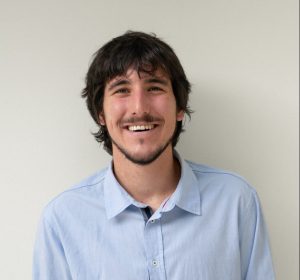
Living nearby the mountains of northern Italy, as a kid the summertime has always been a special time for me, as it meant: camping by the sea, exploring rockpools and endless hours of snorkeling and diving! From then on, I cultivated my love for marine science, graduating from the IMBRSea programme and officially becoming a marine biologist. My passion is researching ecology of communities; because of, this I have participated to a research cruise in the North Sea, and I have been working on copepod diet, microalgae cultivation, shrimp and cod parasites. The two last studies were linked with fisheries science, which is my other main interest.
I am now a PhD student at Háskóli Íslands and working at Hafrannsóknastofnun, the Marine Institute of Iceland, under the supervision of Haseeb Randhawa, Ingibjörg Jónsdóttir, and Julian Burgos. The topic of my PhD is marine fish community dynamics in Icelandic waters, and I am investigating which factors drive the distribution of fish species, how their communities will develop with current climate change and fishing pressure, and which measures can be applied to protect biodiversity and ecosystem services. Through this experience I plan on gaining valuable knowledge on statistics, modelling, and marine management, to become an all-round marine community ecologist.
Gabriel Ferreira (PhD student) - Start: September 2024

I’d say marine science has always been an integral part of my life. Having lived my entire life in one of Portugal’s coastal towns (Vila Nova de Gaia, Porto), I was acquainted with this field at an early age through my visits to the beach during summer and my contact with the subject at school. Thanks to these experiences, I developed a genuine passion for marine science, which led me to pursue a professional career in it. I completed my BSc in Biology at the Faculty of Sciences of the University of Porto and later my MSc in Marine Sciences – Marine Resources at the School of Medicine and Biomedical Sciences of the University of Porto. During the latter, I researched myxosporean biodiversity in an estuarine environment at different stages of their life cycle employing traditional and eDNA-based detection and diversity assessment techniques.
Currently, I’m starting my PhD at the School of Engineering and Natural Sciences (SENS) of the University of Iceland, with the supervision of Dr Haseeb Randhawa and Dr Björn Schäffner. My PhD thesis will focus on surveying the status of parasitic organisms infecting skate hosts in marine ecoregions off Iceland to aid future implementation of conservation efforts to threatened host-parasite systems. Through this work, I intend on improving my knowledge regarding marine parasitology and conservation so I can become a better researcher.
Melanie Stock (PhD student) - Start: April 2025
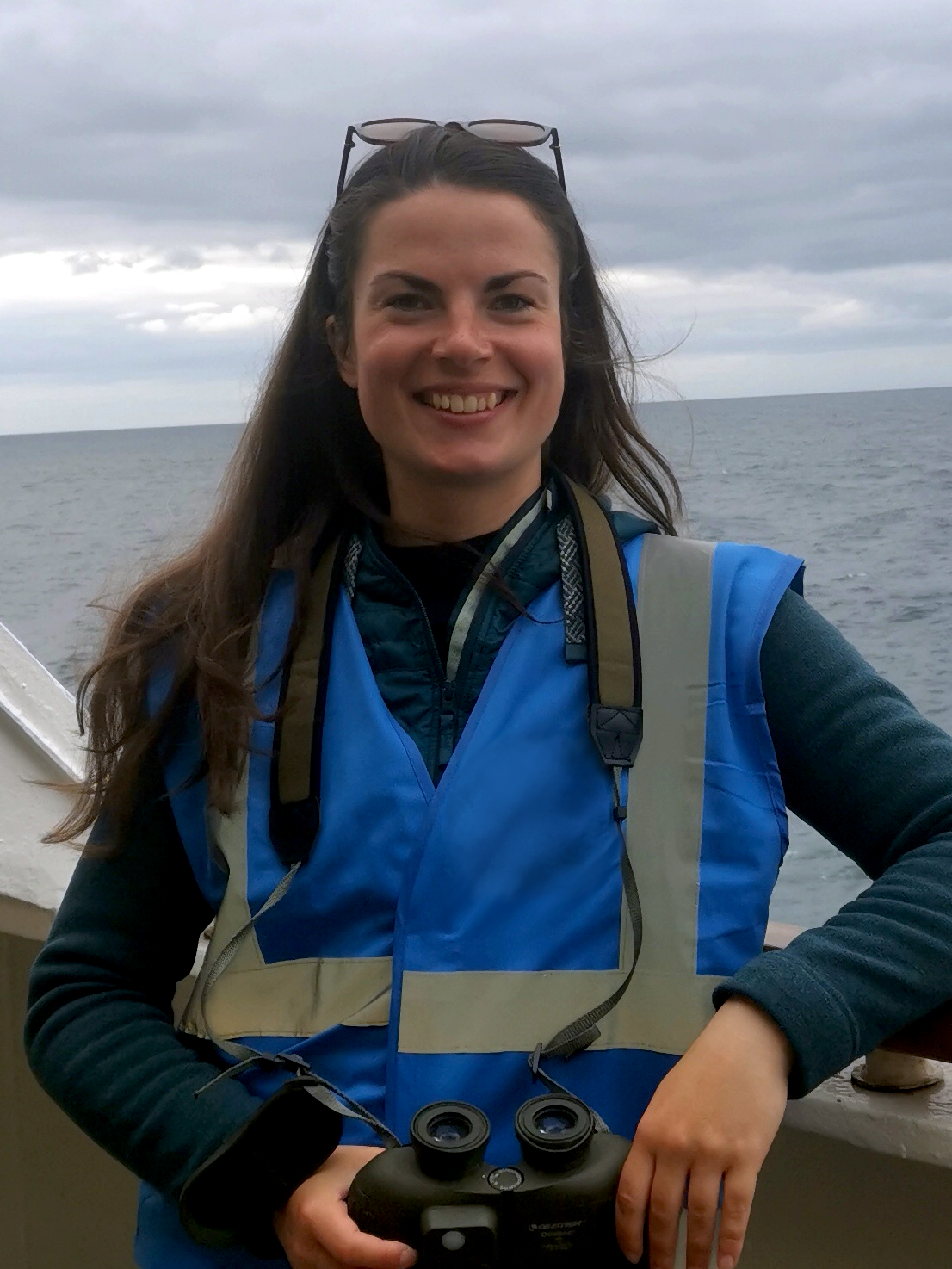
Despite not having grown up near the sea, I always dreamed of becoming a marine biologist studying whales and dolphins (as you do when you grew up with the Free Willy movies!). My path started with my B.Sc. studies in Biology at the University of Tuebingen in southern Germany which I continued by enrolling in the master‘s program of Evolution and Ecology with a major in Marine Ecology. For my master´s thesis, I was lucky enough to collaborate with the Háskólasetur in Ísafjörður in the Westfjords of Iceland. That´s when I fell in love with the nature and culture of Iceland and decided to stay. Now, I am doing my Ph.D. with the Marine and Freshwater Research Institute (MFRI) and Háskóli Íslands. I am more than thrilled to not only be able to finally work in marine research but to also be able to study how to mitigate bycatch of cetaceans and seabirds in Icelandic fisheries. My very own „Free Willy story“.
Svandís Eva Aradóttir (MSc student) - Start: August 2022
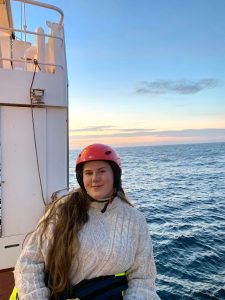
My name is Svandís Eva and I was born and raised in Akureyri where my love of nature became clear early on and after I finished high school I moved to Reykjavík to study biology at the University of Iceland. Because of my love of nature and science and being from an island in the middle of the Atlantic ocean and having the initials SEA, it wasn‘t a surprise to anyone that I applied for a job at the Marine and Freshwater Research Institute (MFRI).
I started at MFRI as a summer student in the summer of 2016 and when I graduated with my BSc in 2017 I came back and later on became a full time employee. I‘m currently the primary age analyzer of blue whiting and capelin as well as participating in a lot of surveys. My goal was always to go back to school and do my masters, after gaining some work experience and finding the perfect project for me I realized I was finally ready to go back to school.
Guðrún Ósk Sæmunsdóttir (MSc student) - Start: August 2023
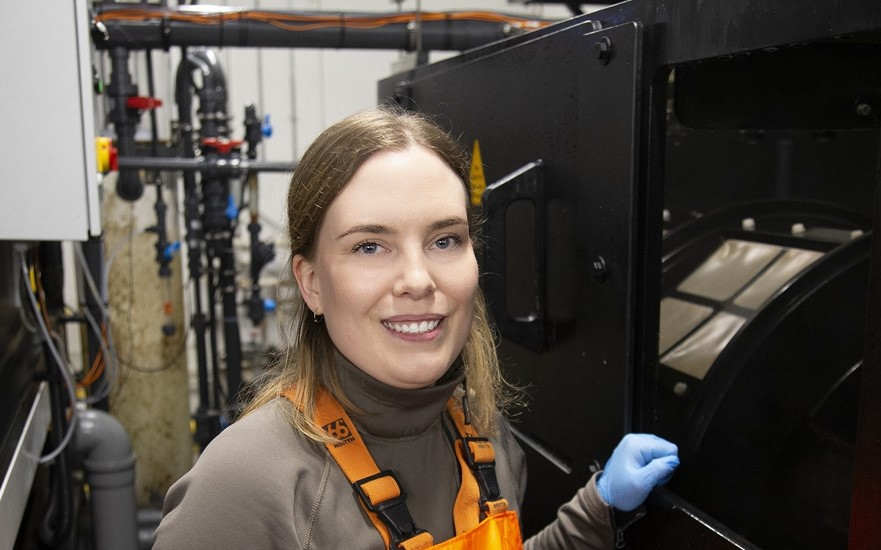
My name is Guðrún Ósk and I come from the outskirts of Reykjavík. I’ve always had a love of nature and natural sciences and as a kid I enjoyed reading science magazines and watching animal documentaries. I went on to study geophysics before realizing it was not for me and biology is where my passion lies. Now I’m about to finish the last semester of my bachelor’s degree in biology. For the past two years I’ve worked at Matís’s sustainability and aquaculture department alongside my studies. Working at their research aquaculture facility has given me the chance to learn a lot about fish and conducting scientific experiments. I’m currently writing my bachelors thesis under the supervision of Haseeb focusing on parasite communities in different ecotypes of threespine sticklebacks in Lake Thingvallavatn.
Kaylin Nickels (MSc student) - Start: August 2024
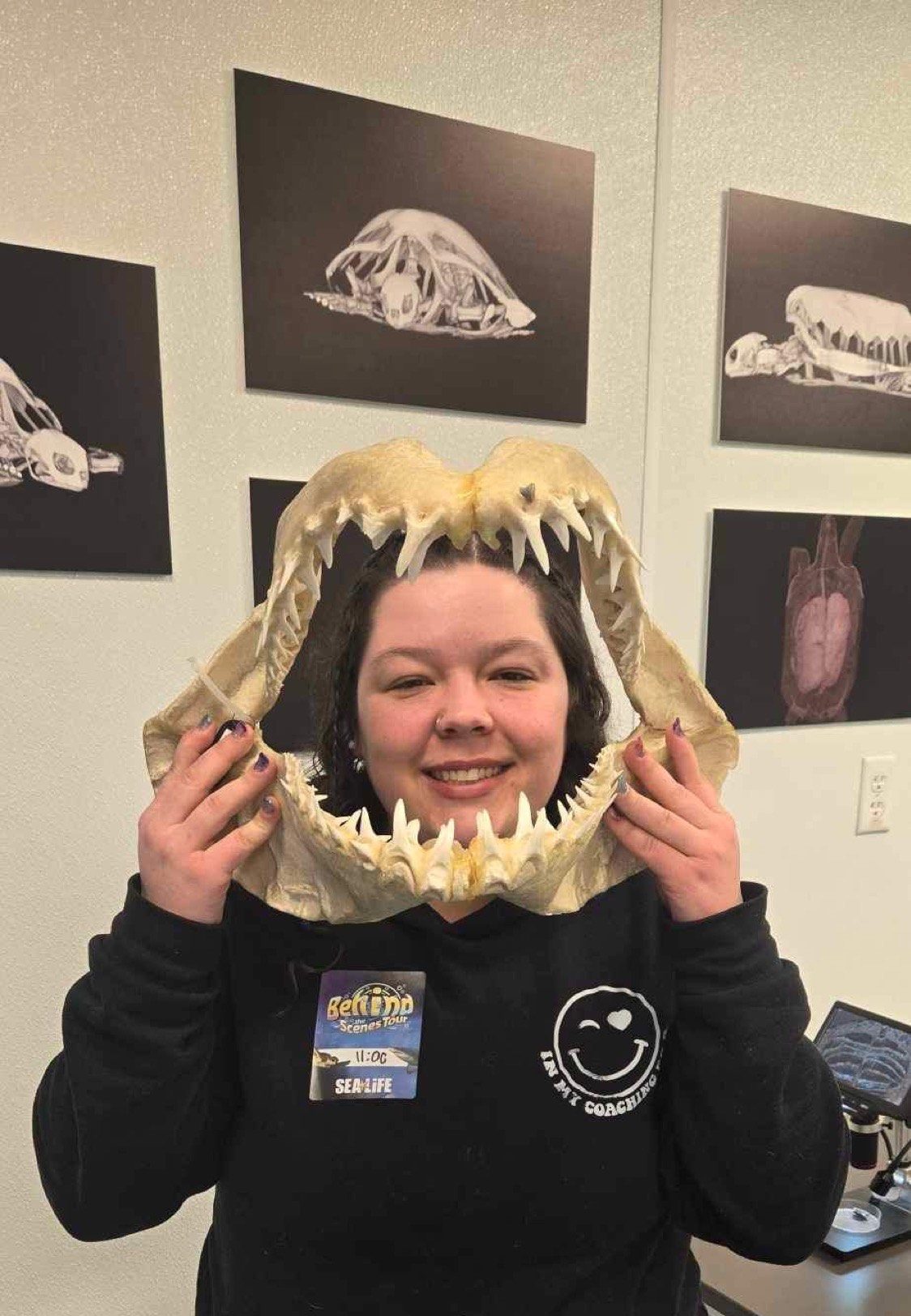
Zaw Myo Win (MSc student) - Start: August 2024
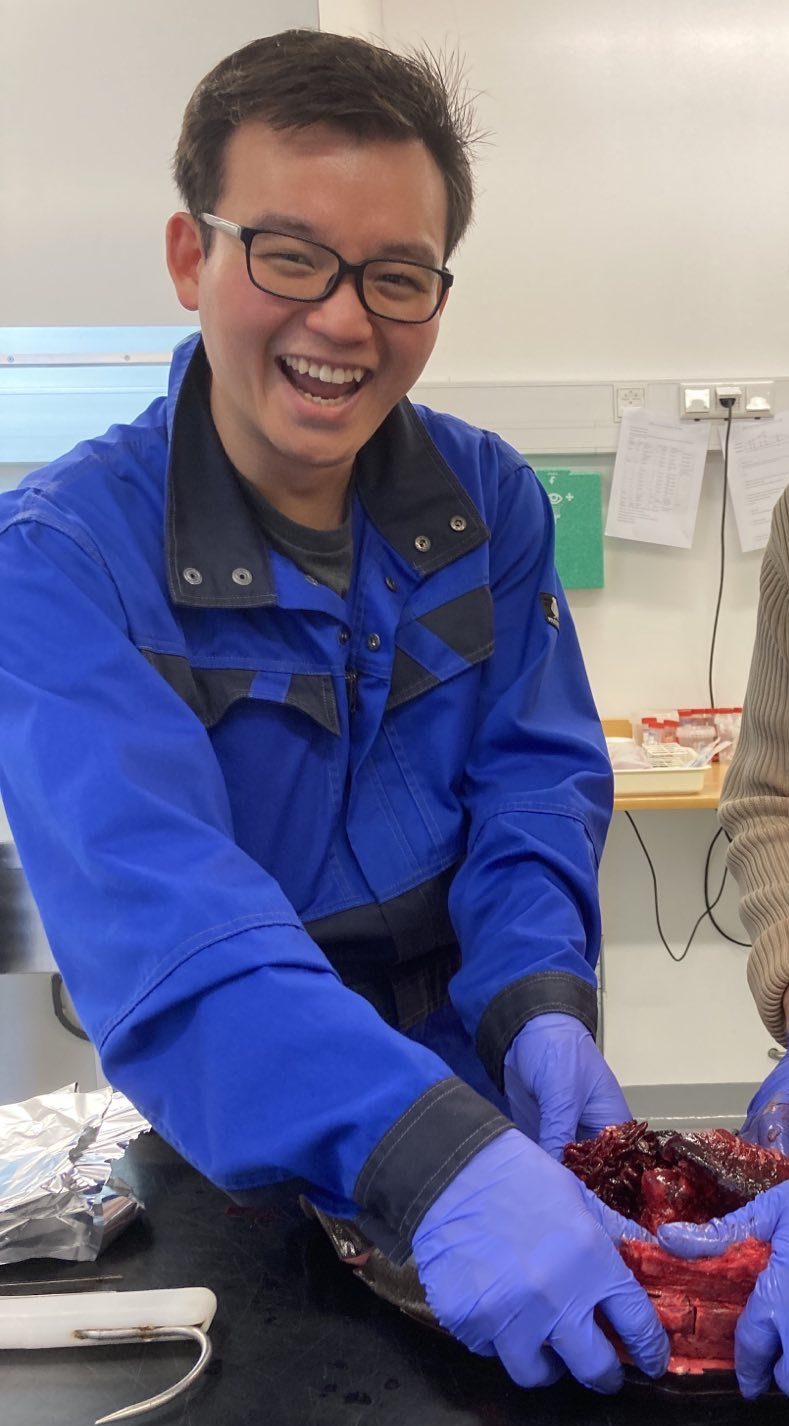
Tryggvi Guðmundsson (MSc student) - Start: August 2024
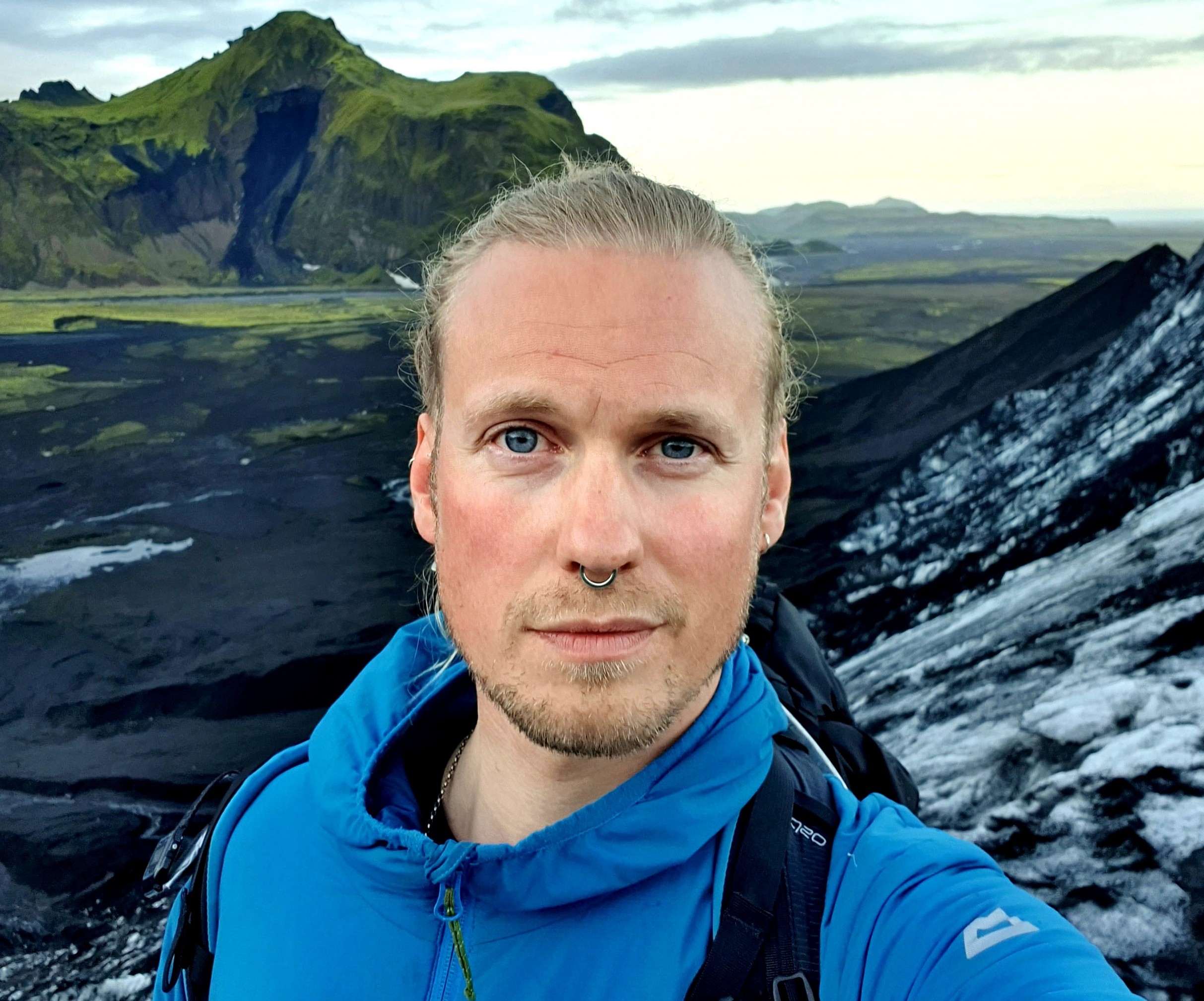
My name is Tryggvi Guðmundsson and I am 36 years old first year MSc student at the Aquatic biology and Fisheries program at the University of Iceland. I was born and raised in Iceland to a family that taught me love and appreciation for nature. I entwined my love for nature into my work life by working as a guide for the last nine years, first as a glacier- and mountain guide and later I weaved my biggest passion, fly fishing and freshwater, into my guiding career. My passion and curiosity towards the aquatic environment has led me to where I am today, studying biology with a focus on the ecology of both the freshwater and the marine environment in hopes that it will propel me towards a profession in research and/or conservation of our waters. My BSc project was done in collaboration with the Marine and Freshwater Research Institution of Iceland. During the project I inventoried the parasites found in and on haddock (Melanogrammus aeglefinus) off the north and south coast of Iceland and performed a comparative analysis of the parasite communities from the two localities. My MSc project has yet to be decided.
Areeba Abrar (MSc student) - Start: August 2024
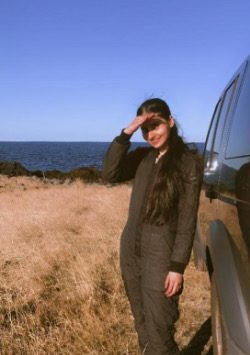 My name is Areeba. I completed my MSc in Marine Sciences and have always been an adventure-loving person, which led me to pursue a career in this field. My journey as a fisheries scientist has been amazing; I have had the opportunity to work with renowned NGOs like WWF and various fisheries agencies, making it a great learning experience for me.
My name is Areeba. I completed my MSc in Marine Sciences and have always been an adventure-loving person, which led me to pursue a career in this field. My journey as a fisheries scientist has been amazing; I have had the opportunity to work with renowned NGOs like WWF and various fisheries agencies, making it a great learning experience for me.
One aspect of marine science that fascinates me the most is seaweeds or macroalgae. My thesis focused on developing a biodegradable plastic wrap using seaweed to reduce plastic pollution in the ocean and the surrounding environment.
Currently, I am pursuing my MSc in Aquatic Fisheries & Biology at the University of Iceland, where I have begun working on another exciting project involving macroalgae under the supervision of Karl Gunnarsson and Haseeb Randhawa. I am excited and looking forward to the opportunities that await me in the near future.
Elísabet Guðmundsdóttir (MSc student) - Start: January 2025
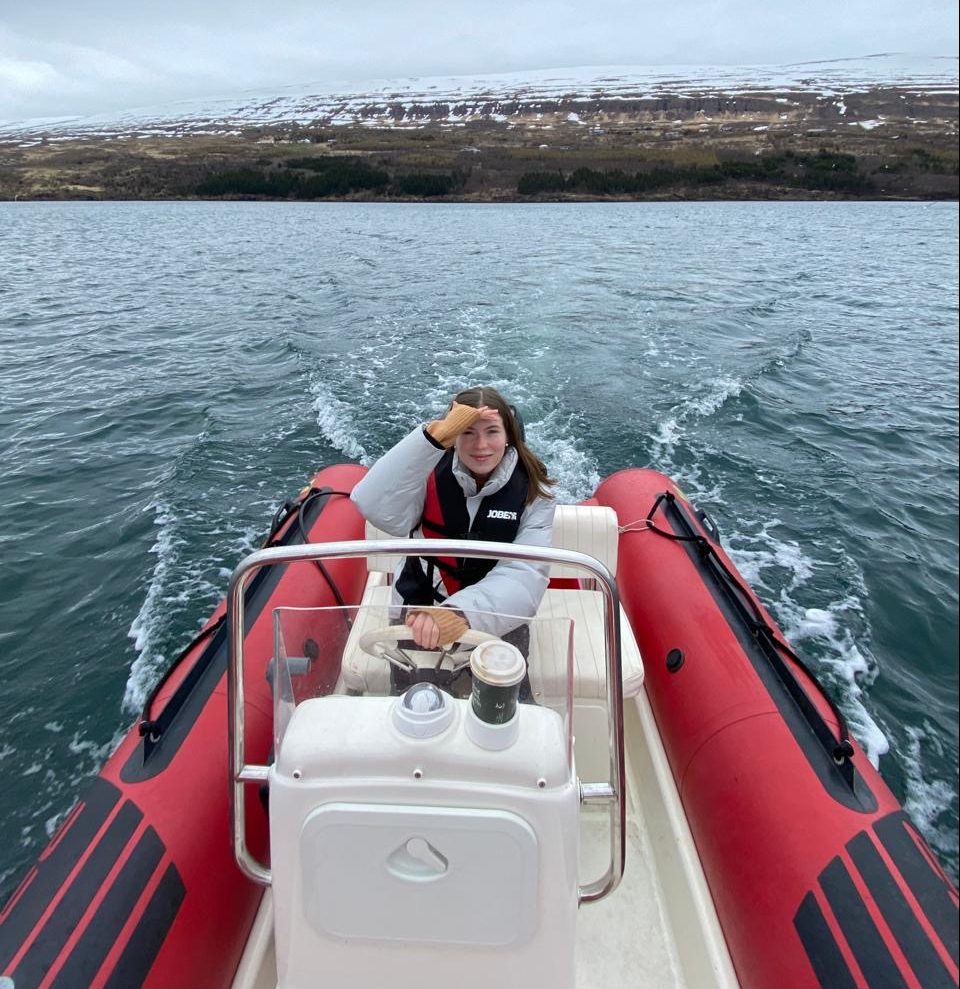 My name is Elísabet, and I am an MSc student in Marine and Freshwater Biology at the University of Iceland. During my undergraduate studies, I conducted a project based on genetic manipulations in Drosophila melanogaster. This experience drastically increased my understanding of laboratory work. However, I realized I wanted to specialize in a subject that included more fieldwork. It wasn‘t until I took courses in parasitology and fish ecology that I discovered marine biology was the perfect fit for my interests, offering a unique blend of both. The first semester of my master's was taken at the University of Bergen, where my coursework centered around practical experiences at sea and several research projects on marine organisms. My master‘s project at the University of Iceland centers around the feeding grounds of different herring populations around Iceland.
My name is Elísabet, and I am an MSc student in Marine and Freshwater Biology at the University of Iceland. During my undergraduate studies, I conducted a project based on genetic manipulations in Drosophila melanogaster. This experience drastically increased my understanding of laboratory work. However, I realized I wanted to specialize in a subject that included more fieldwork. It wasn‘t until I took courses in parasitology and fish ecology that I discovered marine biology was the perfect fit for my interests, offering a unique blend of both. The first semester of my master's was taken at the University of Bergen, where my coursework centered around practical experiences at sea and several research projects on marine organisms. My master‘s project at the University of Iceland centers around the feeding grounds of different herring populations around Iceland.
Knut Albrecht (MSc student) - Start: January 2025
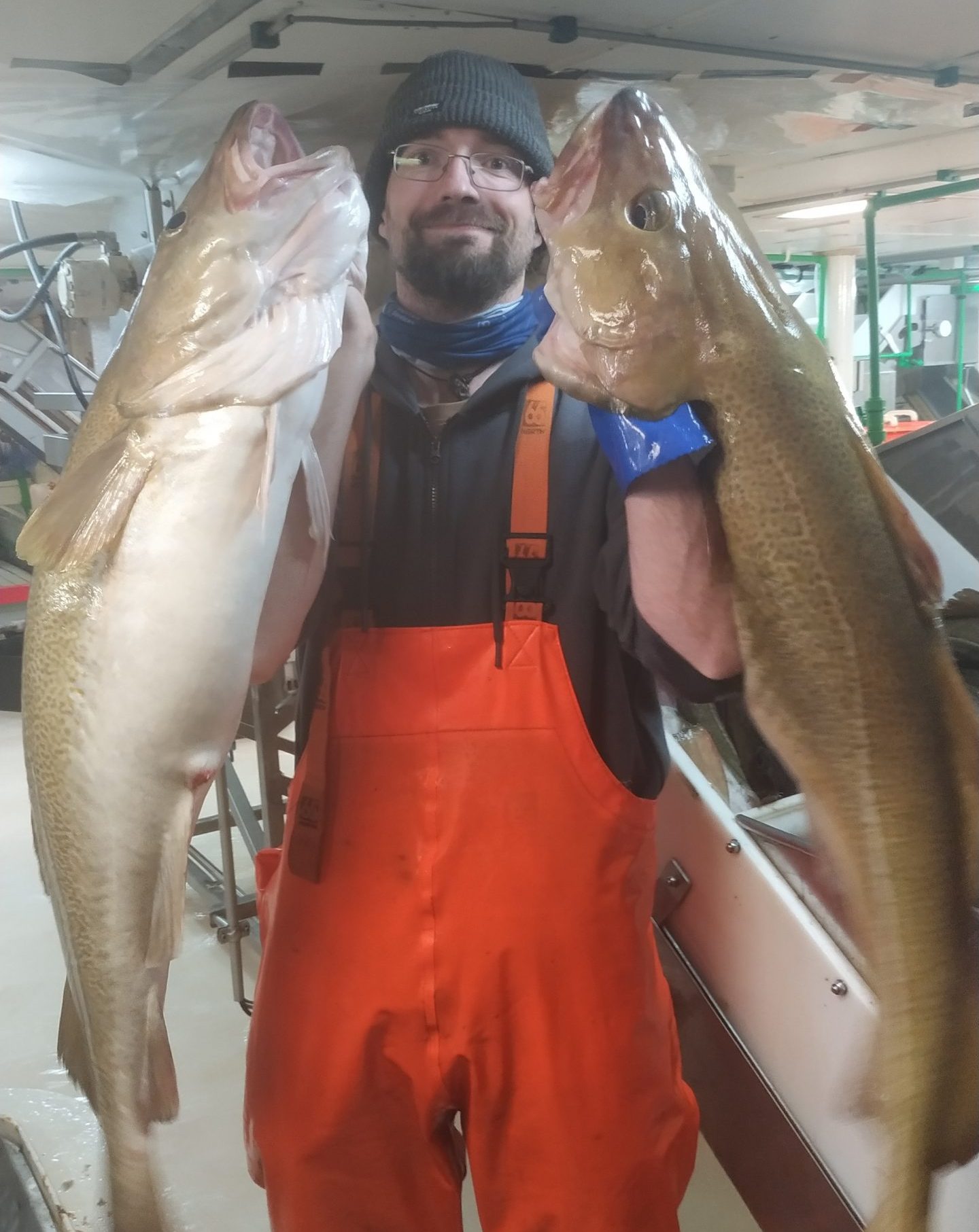
Ever since my father took me fishing at the age of two, I am fascinated by everything that lives in and around the water. Due to this I focused my B.Sc. in Landscape Management and Nature Conservation on the limnological topic of the possible effects of carp stocking on submerged vegetation. Keen on learning more about fish and their environment, I studied Fish Biology, Fisheries and Aquaculture at the Humboldt University of Berlin until Corona hit. Following my passion, I took the chance to participate in a course for the ecology of the mesopelagic zone at the University of Iceland in May 2023. I met Haseeb and long story short, the opportunity emerged to write my thesis about the biology of some rare deep water cat shark species in the waters around Iceland. So, I joined the research cruises aboard the vessel Árni Friðriksson in October 2023 and 2024 to get my hands on some sharks and collect data for my studies. I hope my studies and future work will add to the knowledge of these fascinating animals and their ecology. There is so much to discover in the deep!
Margot Kulberg (MSc student) - Start: January 2025
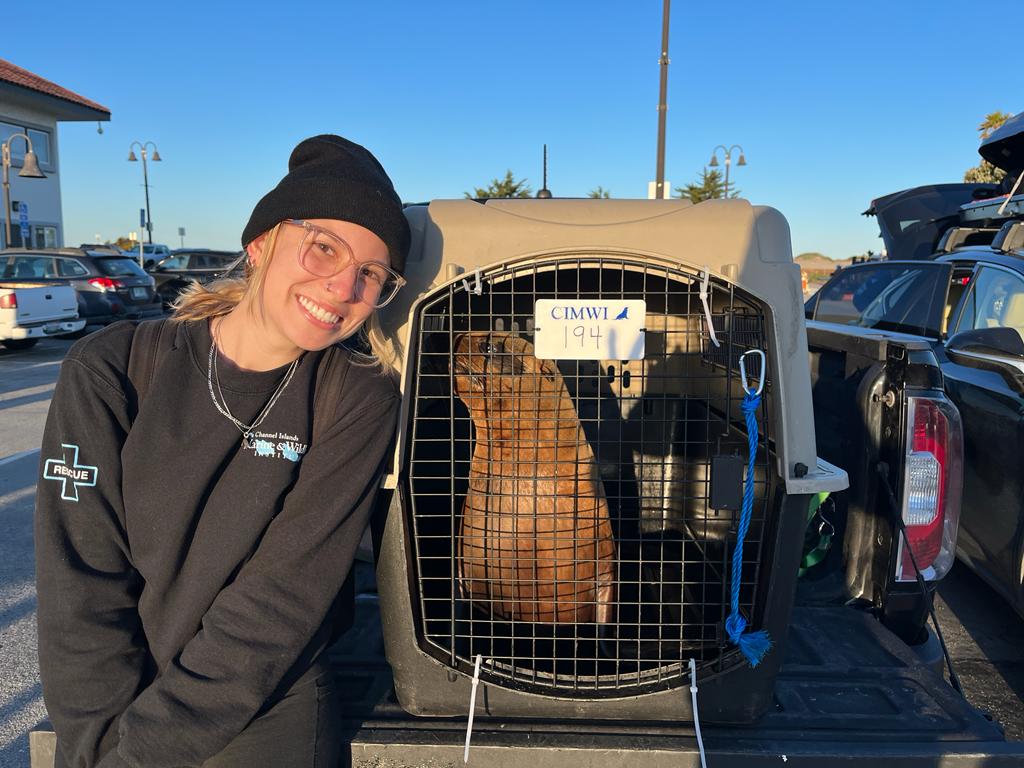 My name is Margot, and I am lucky to have been surrounded by nature from a very young age. Growing up in the mountains of Colorado (USA), I was fascinated with the bears who would visit my backyard, as well as the barking sea lions during trips to California. And, after visiting SeaWorld San Diego, it was clear that I wanted to study marine mammals. My true passion lies with orcas, specifically their communication and behavior. I earned my BS in Biology in California, beginning at Santa Barbara City College and finishing at Westmont College. Over the last couple of years, I have gained experience primarily working with pinnipeds, both in the field and in a rehabilitation setting. Most recently, I was living in Washington State and working on a whale watch boat, where I was often near orcas and other marine wildlife. I am excited to be here in Iceland to work on a project involving orca acoustics with Filipa and Haseeb.
My name is Margot, and I am lucky to have been surrounded by nature from a very young age. Growing up in the mountains of Colorado (USA), I was fascinated with the bears who would visit my backyard, as well as the barking sea lions during trips to California. And, after visiting SeaWorld San Diego, it was clear that I wanted to study marine mammals. My true passion lies with orcas, specifically their communication and behavior. I earned my BS in Biology in California, beginning at Santa Barbara City College and finishing at Westmont College. Over the last couple of years, I have gained experience primarily working with pinnipeds, both in the field and in a rehabilitation setting. Most recently, I was living in Washington State and working on a whale watch boat, where I was often near orcas and other marine wildlife. I am excited to be here in Iceland to work on a project involving orca acoustics with Filipa and Haseeb.
Kristján Friðrik Sveinbjörnsson (MSc student) - Start: August 2025
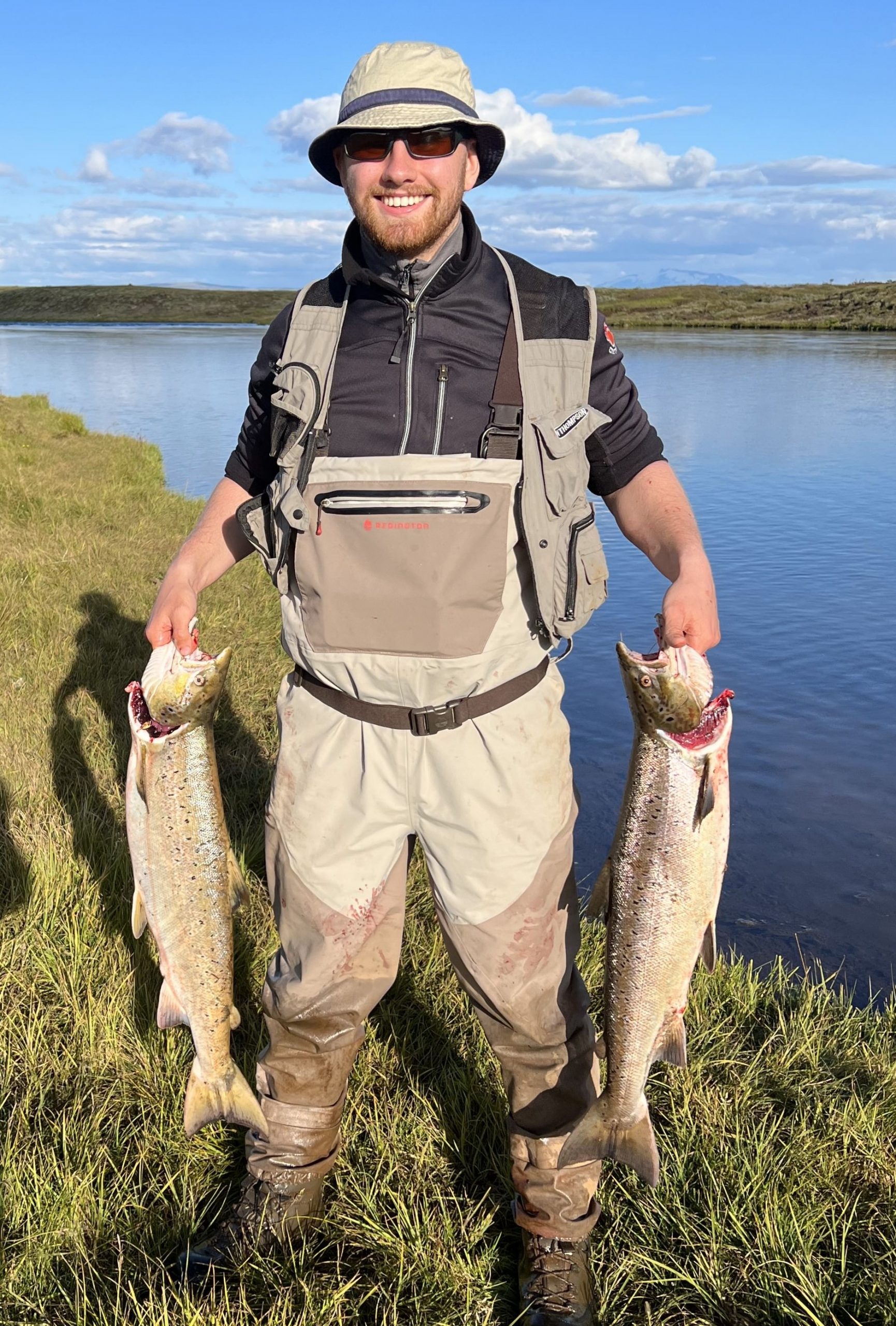
My name is Kristján Friðrik Sveinbjörnsson, and I have been a fisherman for almost all my life. It all started when my dad took me fishing when I was younger and I immediately got hooked to fishing. Because of my interest in fishing and fish in general, I decided to start studying biology at the University of Iceland in 2021. I did not decide what I wanted to do until my last year where I was introduced to parasites. Then in May 2025 I finished my bachelor thesis where I looked into the difference in parasite abundance between arctic char and brown trout in Lake Hítarvatn where I found that arctic char had about 5 times higher parasite abundance than brown trout and thus found evidence of an spillback effect with the arrival of trout. Another interesting finding was the presence of the tapeworm Eubothrium salvelini with molecular confirmation in brown trout which has been considered impossible to happen. Now for my masters, I am assessing the parasite fauna and looking at the difference in parasite abundance between arctic char and brown trout in four lake areas around Iceland. This will hopefully give us further evidence that an spillback effect occurred when brown trout arrived, and hopefully we will find more examples of Eubothrium salvelini in brown trout in different areas around Iceland.
Ella Jorgensen (MSc student) - Start: August 2025
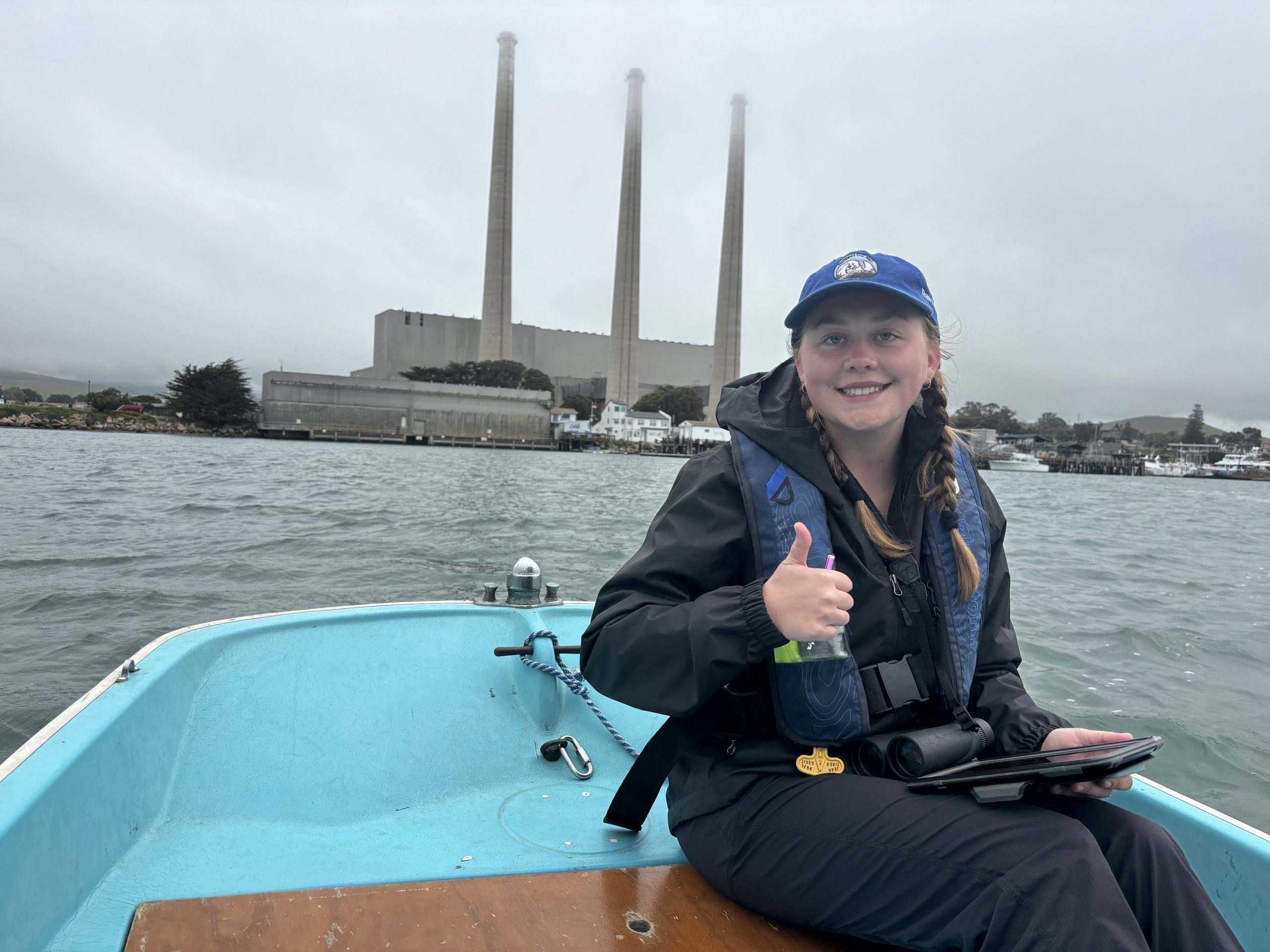 My name is Ella and I’m from Long Beach, California where I work as an ocean lifeguard. I have spent my summers working at the beach since I was very young, and this is where I developed an interest in marine biology. I completed my B.S. in Biological Sciences at California Polytechnic State University, San Luis Obispo. During my undergrad, I spent a lot of time doing field research with marine mammals, especially sea otters and elephant seals. I also studied abroad in Iceland with the University of the Westfjords where I conducted a short study on the effects of human-caused stimuli on harbor seals in Ísafjörður with the help of my advisor, Dr. Sandra Magdalena Granquist.
My name is Ella and I’m from Long Beach, California where I work as an ocean lifeguard. I have spent my summers working at the beach since I was very young, and this is where I developed an interest in marine biology. I completed my B.S. in Biological Sciences at California Polytechnic State University, San Luis Obispo. During my undergrad, I spent a lot of time doing field research with marine mammals, especially sea otters and elephant seals. I also studied abroad in Iceland with the University of the Westfjords where I conducted a short study on the effects of human-caused stimuli on harbor seals in Ísafjörður with the help of my advisor, Dr. Sandra Magdalena Granquist.
I have fallen in love with pinnipeds, behavioral ecology, and Iceland. I am so happy to have the opportunity to come back and continue working with Sandra and Haseeb. I am hoping to further investigate the impact that humans have on harbor seals in Ísafjörður!
Beatrix Takács (MSc student) - Start: August 2025
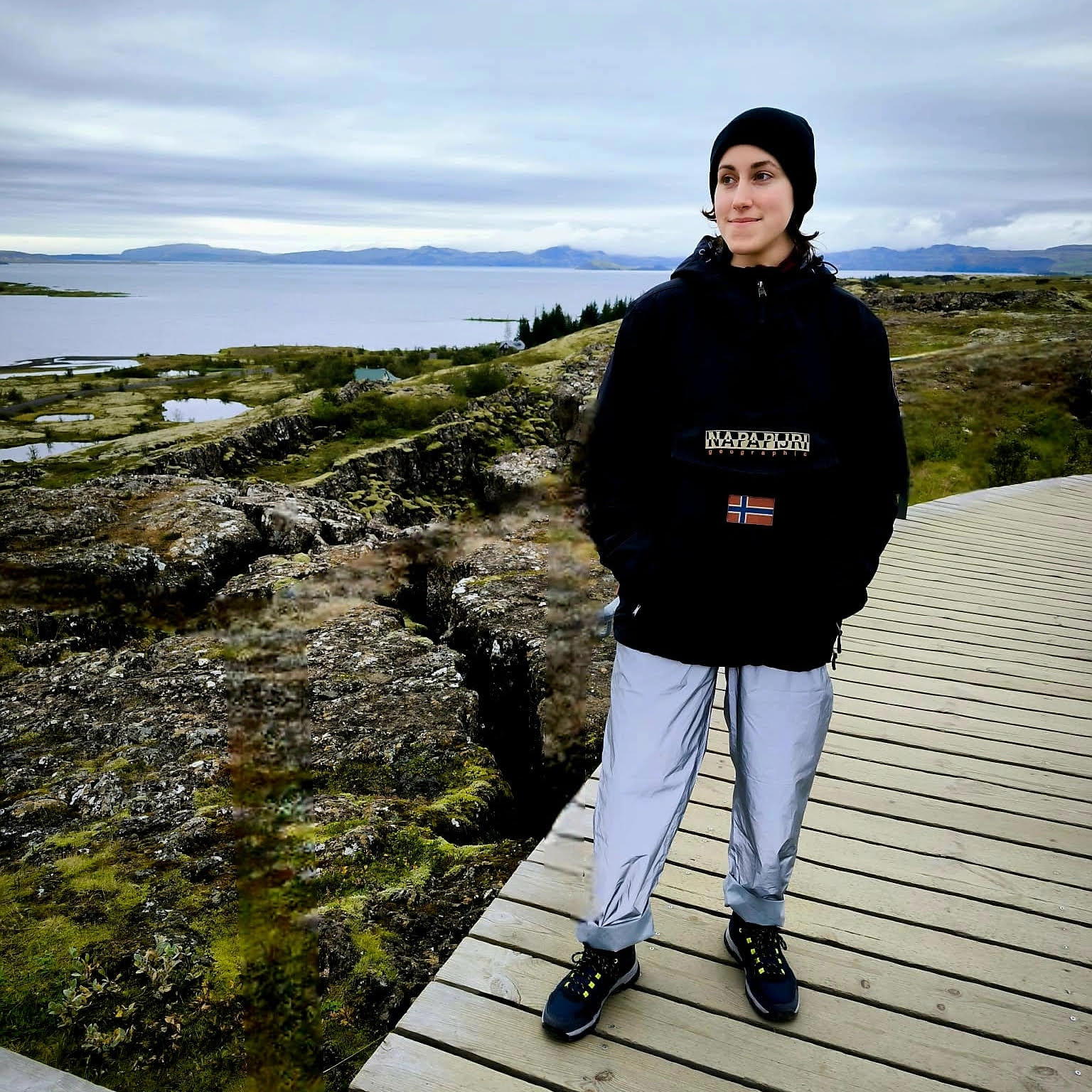
My name is Beatrix and I’m from Hungary. Since I grew up in a country without a sea or ocean my family would travel to Croatia every summer for our holidays. That’s where I first tried snorkeling and fell in love with the underwater world. Later on, I watched numerous documentaries about life in the ocean and learned how to scuba dive. My interest in biology and marine ecosystems led to my bachelor’s program, where I aimed to work on a project related to marine biology. That is the reason why I conducted my thesis on Cyprus by researching green sea turtles (Chelonia mydas). Even though it was a great opportunity to work on a sea turtle research project, my passion has always been to work with sharks. For my master’s project I’ll be focusing on deep sea sharks’ ecotoxicology, diet, and parasites with my supervisors, Haseeb Randhawa and Klara Jakobsdóttir.
Clarke Alicia Blair (MSc student) - Start: August 2025
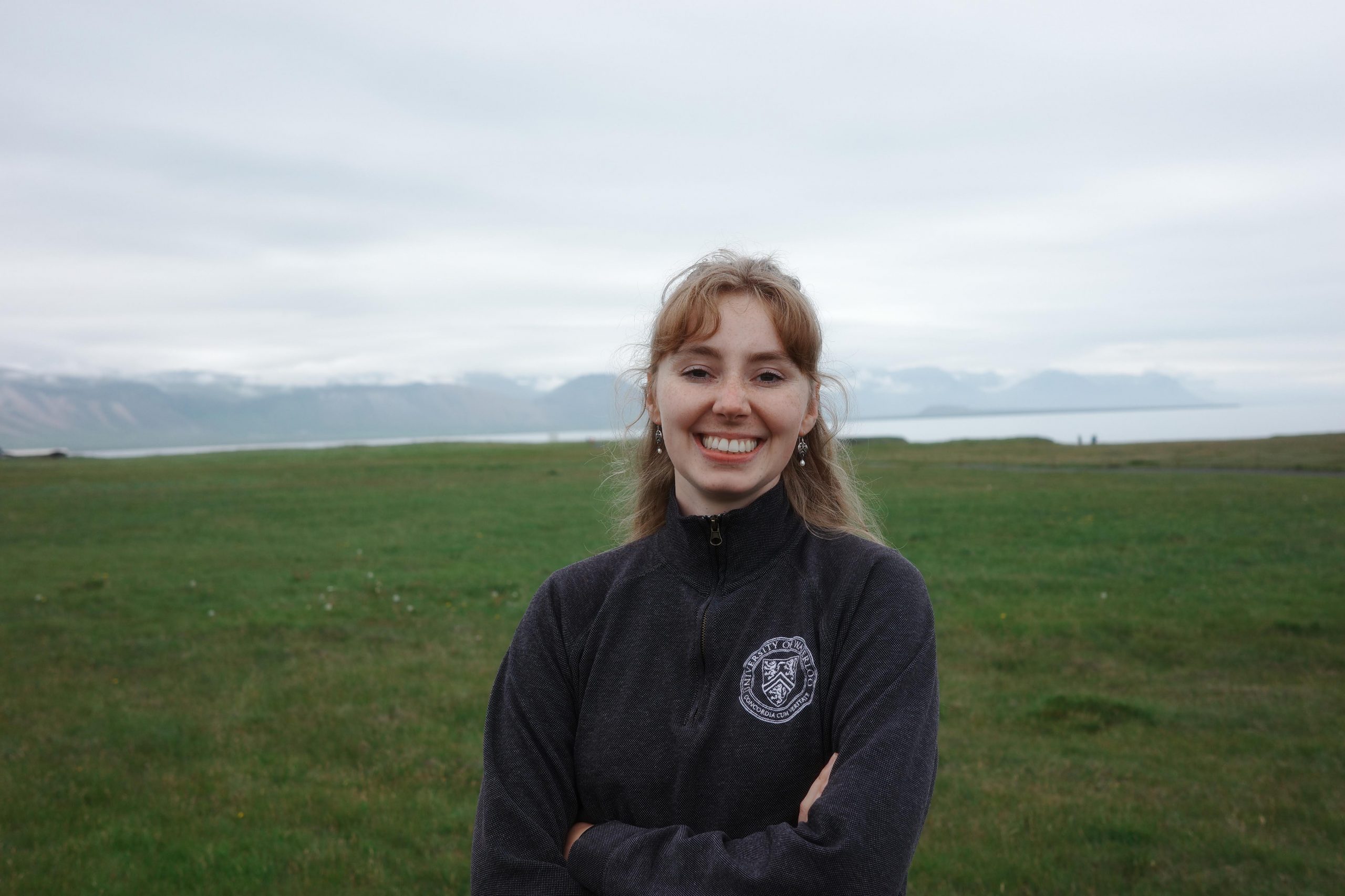 My name is Clarke Blair (she/her) and I am developmental biologist and science educator from Toronto, Canada. I hold an honours BSc from the University of Toronto in neuroscience and cell biology, with a focus on developmental and reproductive biology. In my BSc, I was hungry for research and found opportunity to work in the lab with zebrafish, mice, mouse cell lines, human clinical data, and in the field with American bullfrogs. I have spent the past four years working in museum education at the Ontario Science Centre in Toronto; I am passionate about inspiring people to be curious about the world around them. However, as much as I love museums, I missed the rigour of scientific research. Now, my own curiosity about the world around me has brought me back to school. I dream of work that takes me both out into the field and back into the lab, so I am eager to be here in beautiful Iceland applying my developmental and reproductive biology skillset to examining the effect of temperature on capelin gonadal development.
My name is Clarke Blair (she/her) and I am developmental biologist and science educator from Toronto, Canada. I hold an honours BSc from the University of Toronto in neuroscience and cell biology, with a focus on developmental and reproductive biology. In my BSc, I was hungry for research and found opportunity to work in the lab with zebrafish, mice, mouse cell lines, human clinical data, and in the field with American bullfrogs. I have spent the past four years working in museum education at the Ontario Science Centre in Toronto; I am passionate about inspiring people to be curious about the world around them. However, as much as I love museums, I missed the rigour of scientific research. Now, my own curiosity about the world around me has brought me back to school. I dream of work that takes me both out into the field and back into the lab, so I am eager to be here in beautiful Iceland applying my developmental and reproductive biology skillset to examining the effect of temperature on capelin gonadal development.
Sigríður Júlía Jóhannesdóttir (BSc student) - Start: August 2025
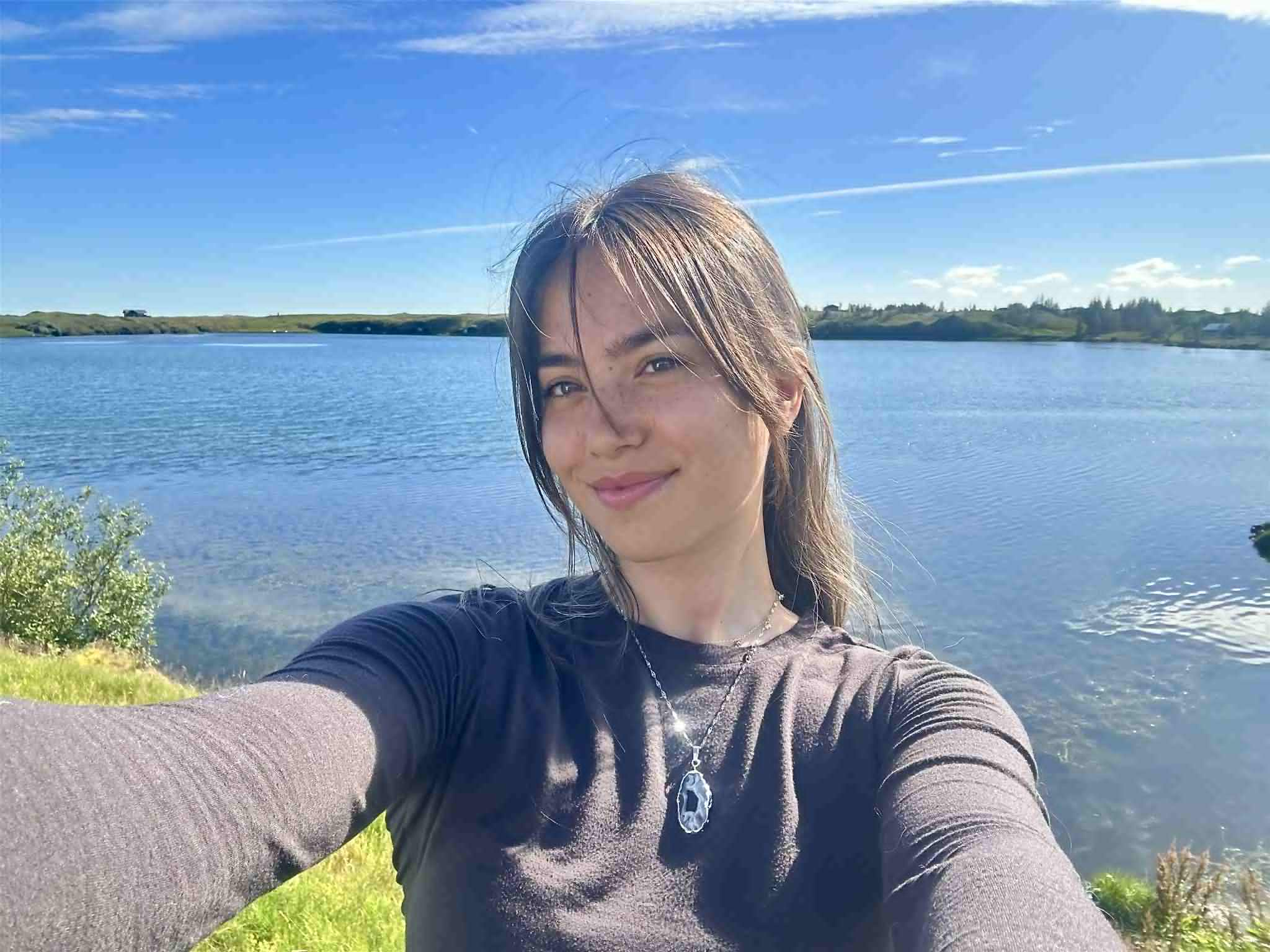
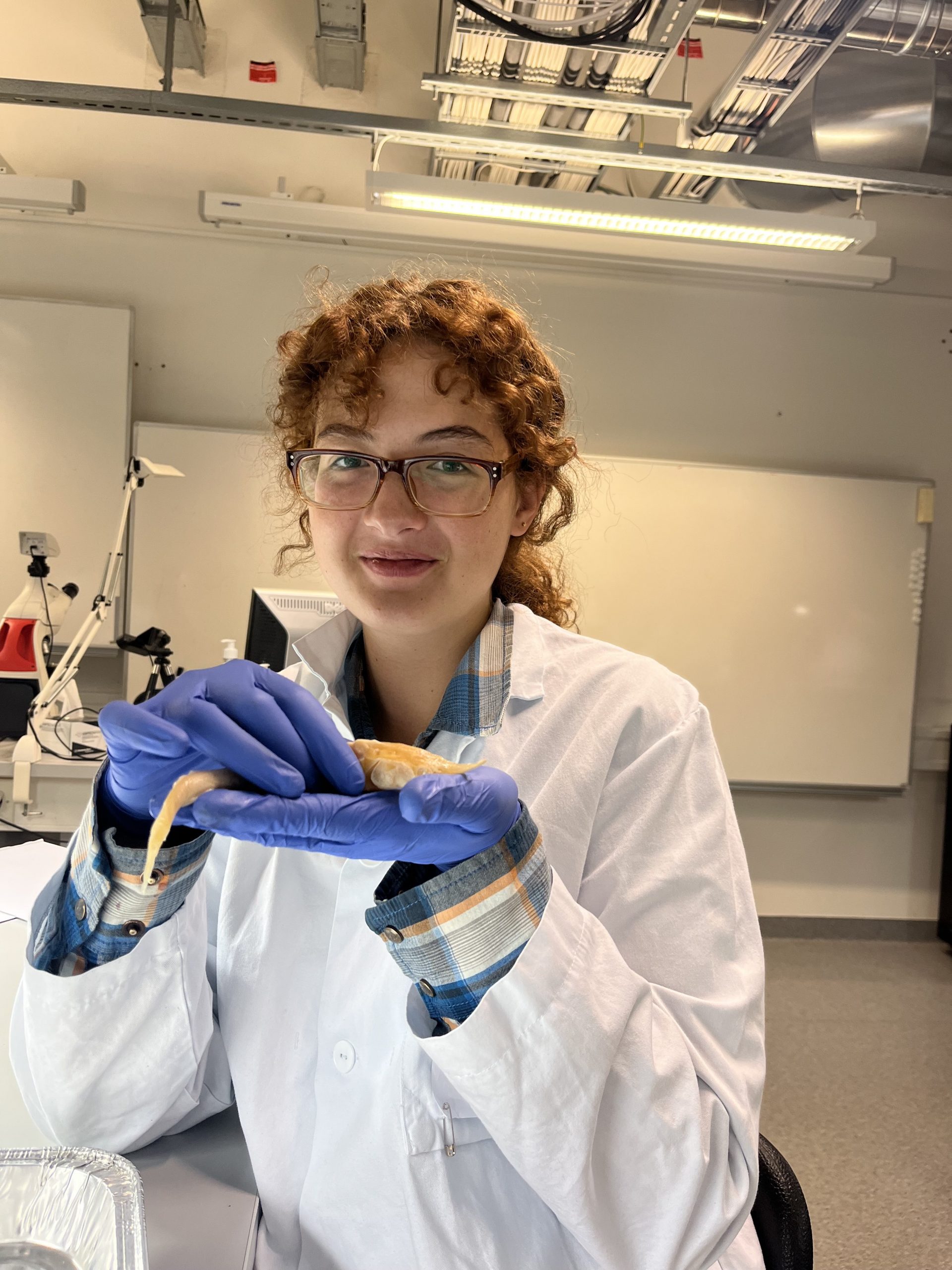
Throughout my bachelor’s, I have had the opportunity to work, study and volunteer in many different places. I’ve worked six months as an agricultural monitor and three months as a research assistant studying the impacts of aquaculture farms on macrobenthic invertebrate communities in Lake Superior. I have also had the opportunity to volunteer in the Galapagos Islands, working on protecting endemic plant species from invasive ones. I’ve spent time studying in Canada, Iceland and Norway where I primarily took courses related to fisheries and aquaculture. These opportunities have fueled my passion for biology. This semester, I will be completing a project about the parasite fauna of lumpfish in Icelandic waters under the supervision of professor Haseeb Randhawa.
